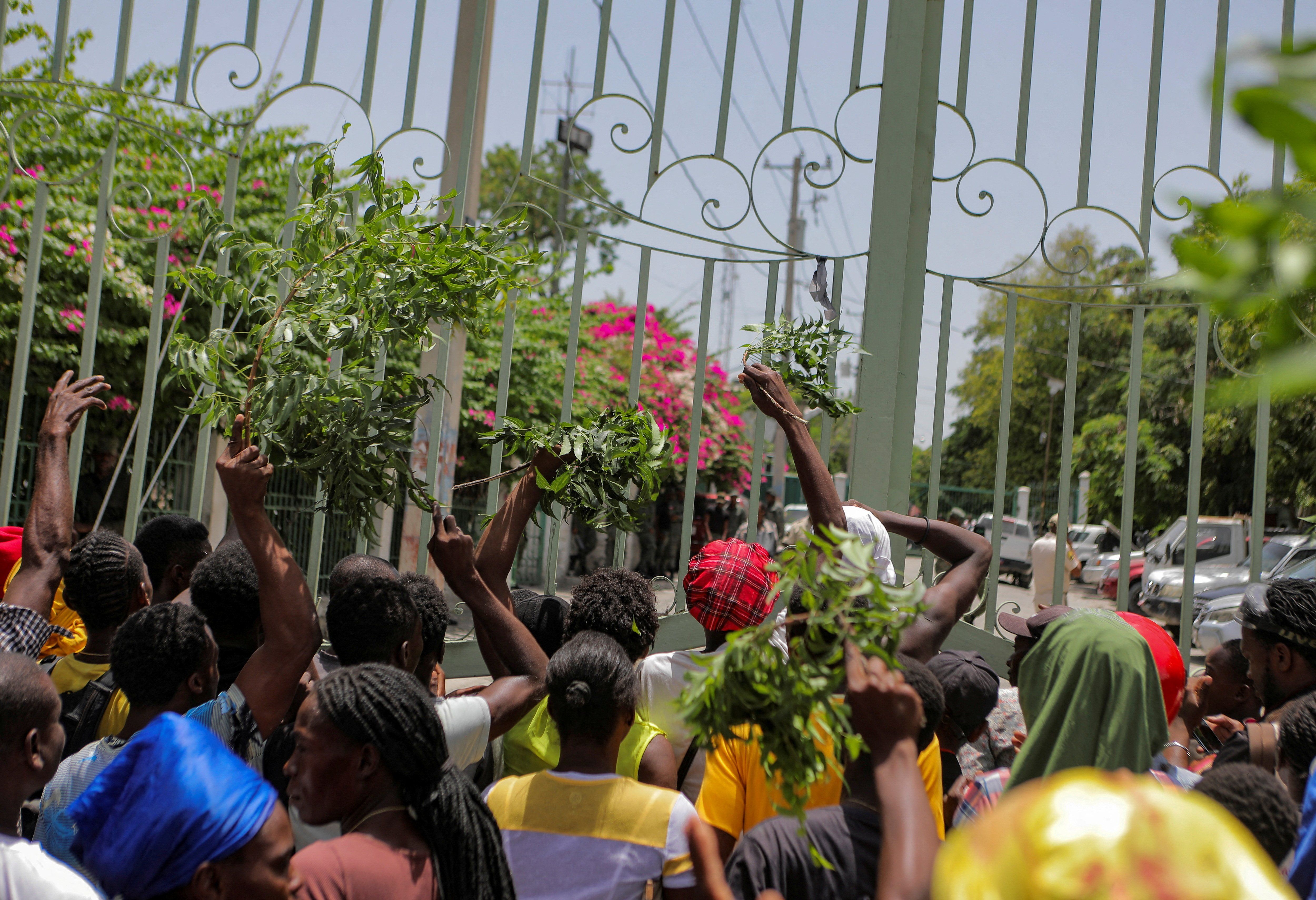Who on earth would want to fight the gangs of Haiti?
Kenya, for one.
In early August, the East African nation offered to lead a UN-backed policing mission to corral the gangs that have wreaked havoc on Haiti ever since the assassination of President Jovenel Moise in 2021 plunged the Caribbean nation into fresh political and economic chaos.
Several weeks later, a Kenyan security team spent several days in Port-au-Prince, meeting with local officials, UN representatives, and US diplomats to craft a peacekeeping proposal.
The situation there continues to deteriorate by the day. Gangs now control 80% of the Haitian capital. Gang-related violence and kidnappings have displaced at least 165,000 Haitians. In late 2022, a gang takeover of fuel depots put nearly half of the country’s 11 million people at risk of starvation.
The chaos has paralyzed the government of Prime Minister Ariel Henry, who took over after Moise’s death but has no electoral mandate. Elections would be nearly impossible to hold under the current conditions.
Both Henry and the UN have called for outside help. The US too, which this week called on all of its own citizens to leave Haiti, has backed the idea.
If it happens, it would be the first time any African Union country has led a major peacekeeping operation beyond the continent.
But why, exactly, is Kenya signing up for this? After all, warring with Haitian gangs sounds like a distinctly thankless and possibly fruitless task.
Nairobi framed its proposal as a mission of brotherly assistance to people of African descent. But analysts say it’s part of a broader agenda to raise Kenya’s international profile.
Kenya has a long history of participating in international forces within Africa – Sierra Leone in the late 1990s, Somalia since 2011, and the Democratic Republic of Congo since late last year. But since President William Ruto came to power last year in a bitterly contested election, Nairobi’s foreign policy has become “significantly more adventurous,” says Connor Vasey, an East Africa specialist at Eurasia Group.
In addition to the DRC intervention, Ruto hosted the peace talks that ended the war between Ethiopia’s government and Tigray rebels, and he leads a multilateral group mediating Sudan’s current civil war as well. Next week, he is hosting the United Nations’ African Climate Week in Nairobi.
By looking toward Haiti, Ruto is signaling that he wants to take Kenya’s role on the international stage to the next level, says Mercy Kaburu, an assistant professor at United States International University in Nairobi.
“Under this new government,” she says, “Kenya is asserting itself as an African country that is willing to go out of its comfort zone, a country that can undertake more complicated global roles.”
Is there a US angle here? Yes. Washington is keen to see the situation in Haiti stabilize. The humanitarian crisis has driven a surge in irregular immigration from Haiti to the US, and the country’s descent into a gang-wracked failed state is an open invitation to drug cartels and other transnational criminal organizations to take root there.
But at the same time, the US – which has its own checkered history of interventions in Haiti – has ruled out intervening directly. If Kenya wants in, Washington seems glad to back Nairobi. And Ruto has, in fact, been keen to deepen ties with Washington again after his predecessor forged stronger relations with China.
Vasey at Eurasia Group says there’s reason to believe the US may offer some “financial incentives” to Kenya in exchange for taking on the Haiti mission. Last year, the US sent close to a billion dollars of aid to Kenya.
Not everyone loves the idea of Kenyan intervention. Rights groups point out that Kenya’s police have a history of using excessive force and carrying out extrajudicial killings at home.
Language barriers could also be an issue, as Kenyan policemen generally don’t speak French, much less Haitian Creole.
And among ordinary Haitians, there has long been a deep skepticism of foreign interventions of any kind. They have never brought lasting peace but they have, on occasion, brought epidemics of cholera, as the UN peacekeepers from Nepal did a decade ago. The sight of a government with no popular mandate inviting yet another foreign intervention may not go over well with ordinary Haitians.
The stakes are high. Thousands of ordinary Haitians have braved the streets in recent weeks to protest against the gangs. And many Haitians, desperate for order, have formed vigilante groups of their own, killing hundreds of suspected gang members. Last weekend, a church group armed with sticks and machetes clashed with a local gang outside of Port-au-Prince, leaving at least 7 people dead.
With that kind of violence, even Kenya seems worried. The Kenyan mission to Haiti resulted in a more limited proposal than what Haitian officials had hoped for. Rather than a broad strategy for tackling the gangs, Kenya suggested a narrower focus on securing critical infrastructure. And, according to one report, Kenyan officials were so spooked by the escalating violence that they barely left the Port-au-Prince airport.
What’s next: Kenya will need to finalize its proposal and take it to the UN for a vote. That could happen in the coming weeks. In the meantime, Haitians continue to live a daily hell with no end in sight.
